Fundy Shore in Nova Scotia
July 16
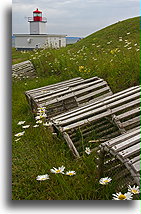
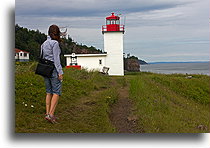
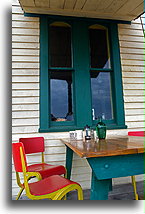
We found the Fundy Shore in Nova Scotia to be quiet and with very few visitors. Easy to observe, the world's highest tides are undoubtedly the biggest attraction here. We watched tides from the shore in several places, reaching them by driving back roads. We stopped at Cape d'Or and the settlement named Spencer's Island. The latter proved to be a place where the merchant ship Mary Celeste was built right on the beach. She is the famous ghost ship that was found in 1872, unmanned, and seemingly abandoned. Mary Celestes mystery has never been solved.
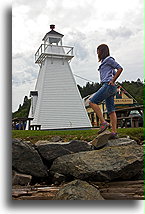
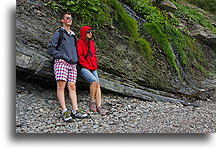
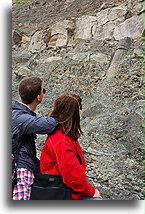
Joggings in Nova Scotia was the last stop of our New England and Maritime Canada trip. We wanted to see the fossils, lying directly on the beach. We were not disappointed this time; there are plenty of fossils from the Pennsylvanian subperiod. During low tide, we walked along the shore looking at the rocks, turning stones and trying to make a meaning to whatever unusual imprint we found. We noticed the tree trunks, stems and leaves of many plants. Unfortunately, we had no luck, see the traces of animal fossils.
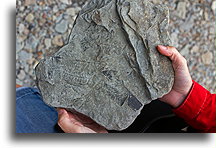
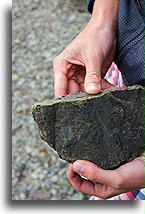
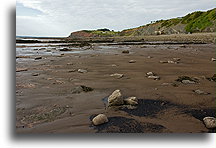
It was the end of our first trip with Jeep Wrangler we called Balios. After sunset, we hit the road heading home.









